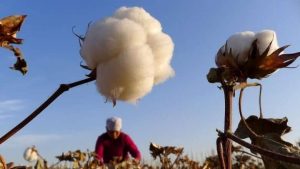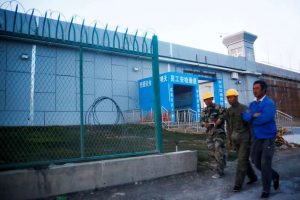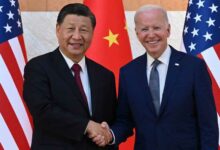Federal government moves to seal off Canadian companies from human rights violations in China

The federal government announced a suite of new regulations today meant to ensure that Canadian companies are not complicit in human rights abuses or the use of forced labour in China’s Xinjiang province.
The measures include new requirements for firms that do business in the region and a pledge to ban the export of products from Canada to China if there is a chance they could be used by Chinese authorities for surveillance, repression, arbitrary detention or forced labour.
“Canada is deeply concerned regarding the mass arbitrary detention and mistreatment of Uighurs and other ethnic minorities by Chinese authorities,” Foreign Affairs Minister François-Philippe Champagne said in a news release shortly before leaving the department to become the new minister of Innovation, Science and Industry.
“Nobody should face mistreatment on the basis of their religion or ethnicity,” Champagne added.
Today’s actions represent the strongest measures yet taken by Canada in the face of growing international criticism of the Chinese government over its policies in Xinjiang — but they stop short of imposing “Magnitsky sanctions” on Chinese officials — something called for by a parliamentary committee that found China’s actions meet the definition of genocide.
Forced labour, arbitrary detention
UN experts and activists say more than one million Uighurs, Kazakhs and others have been arbitrarily held in prison-like centres for political indoctrination. China claims the centres are intended to combat extremism and teach job skills, but former residents and rights groups say they target Islam and minority languages and cultures.
A coalition of civil society organizations has also accused China of forcing hundreds of thousands of Uighurs and other minorities to pick cotton by hand. The vast western province produces 85 per cent of China’s cotton and 20 per cent of the global supply, which is sold to fashion brands worldwide.
The Center for Global Policy, a Washington-based think tank, found in a December 2020 report it was very likely a major share of cotton from Xinjiang is “tainted with forced labour.”

Canada already bans the importation of goods produced through forced labour as part of its obligations under the Canada-U.S.-Mexico Agreement (CUSMA), Global Affairs Canada said in a news release.
The new regulations also require that Canadian companies in the Xinjiang market sign a declaration acknowledging that they are aware of the human rights situation in the province and pledging to conduct due diligence on Chinese suppliers to ensure they are not knowingly sourcing products or services from companies that use forced labour.
Global Affairs Canada also issued a business advisory warning Canadian businesses of the legal and reputational risks they face by maintaining supply chains associated with forced labour.
The new measures were announced in concert with similar actions taken by the U.K., although that government promised to impose financial penalties on companies that do not comply — something that doesn’t appear to be part of Canada’s approach.
Last fall, the House of Commons subcommittee on international human rights released a report stating that China’s persecution of this Muslim minority is a clear violation of human rights and is meant to “eradicate Uighur culture and religion.” The Chinese foreign ministry lashed out in response, accusing the committee of spreading lies and disinformation.
Canada exported $23 billion worth of merchandise to China and imported $75 billion in 2019.
CBC








Redes Sociais - Comentários